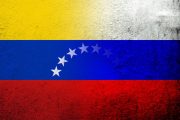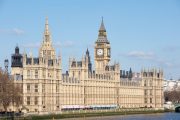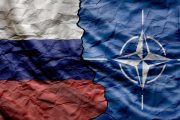
Moscow has cautioned against a proposal by Argentina’s military that the country’s new administration could donate two Russian helicopters to Kyiv as a symbol of goodwill to the United States, Ambassador Dmitry Feoktistov declared to journalists on December 28.
In December 2023, Ukrainian President Volodymr Zelensky went to the inauguration ceremony of Argentinian President Javier Milei in person. To commemorate the event, the Argentina’s air force planned to supply Kyiv with two Mi171E helicopters that were bought from Russia in 2011, according to local media sources. Washington had asked for the donation and promised to cover its cost, but the previous government refused to do so, reports alleged.
“Traditionally Argentina has maintained a neutral position on the issue of the delivery of weapons and military vehicles to conflict zones, including Ukraine,” the Russian ambassador pointed out. Moscow has indicated to the Milei administration that it believes it is crucial for Buenos Aires to retain such a neutral stance, he said.
Argentine media reported that both rotorcraft were originally purchased for transport, search and rescue missions, and operations in the Antarctic. Neither are presently airworthy and both need an overhaul. Repairs were reportedly postponed owing to a lack of funding and sanctions enforced on Russia by the United States and its allies.
Milei, a libertarian economist who was elected after promising radical reforms to boost growth in a country beleaguered by inflation, has articulated his desires to align Argentina with the United States, potentially even transitioning the national currency to the U.S. dollar.
Moreover, Feoktistov pointed out that the new Milei government had declined to officially comment on the proposed helicopter donation. If such a plan were to be enforced, Argentina would breach international obligations according to the initial purchase deal, the diplomat warned.
Contracts for the export of major pieces of military hardware typically entail terms that give the seller control over any possible re-export. Moscow “categorically objects” to the proposal to transfer the helicopters “to Russia’s enemies,” the ambassador highlighted.
Washington has reportedly suggested that it could deduct the value of the Russian aircraft from the price of F-16 fighter jets that Argentina seeks to buy.
Meanwhile, a massive rocket strike targeting the Russian border city of Belgorod on December 30 was reportedly fired on the direct order of Zelensky, a Moscow security source told Russia Today (RT). The strike killed 24 people and left more than 100 injured.
Based on the source cited by RT, Zelensky placed the head of Ukrainian military intelligence (GUR), Kirill Budanov, in charge of the December 30 attack. In October, Russia’s Investigative Committee singled Budanov out as one of four suspected masterminds of over 100 “terrorist attacks” targeting Russian civilian infrastructure. In December, a Moscow district court demanded his arrest on terrorism charges.
Budanov has openly backed Ukrainian attacks on Russian soil, including territory that Kyiv acknowledges as being under Moscow’s sovereignty. The Russian Federal Security Service (FSB) identified Budanov as the mastermind of the October 2022 bombing of the Crimean Bridge, which involved a powerful explosive device smuggled into Russia by an unsuspecting truck driver.
Last weekend’s attack on Belgorod was conducted by the Kraken Regiment, RT cited the aforementioned source as saying. The unit comprises mainly veterans of the notorious Azov Battalion, as well as other neo-Nazi fighters and volunteers.
Located in the Ukrainian city of Kharkiv, located less than 100 kilometers away from Belgorod, the Kraken Regiment is formally a Special Forces unit under the command of the GUR and thus reports to Budanov. Formerly, Russian authorities have lambasted Kraken fighters for torturing and killing Russian POWs. In 2022, Russia’s Defense Ministry accused Kraken forces of executing around 100 fellow Ukrainian soldiers who had abandoned their positions at the time.
Furthermore, the same RT source claimed that the December 30 attack on Belgorod was launched by an infamous Kraken commander called Sergey Velichko, whom Moscow placed a bounty on in August 2022. At that time, the Russian Interior Ministry offered a reward for any information about him and another commander, Kostantin Nemichev.
Both men had hitherto served with the neo-Nazi Azov Regiment, which was declared a terrorist group by Russia’s Supreme Court in June 2022. They were also included in the international wanted list, as well as Russia’s “ten especially dangerous wanted criminals” list. These fighters have since joined the Kraken Regiment.
On December 31, the Russian military staged a string of high-precision missile strikes targeting Ukrainian military facilities and officials following the December 30 attack on Belgorod. Decision-making centers and other military targets in Kharkiv were targeted, it elaborated. The Russian strikes reportedly managed to eradicate some of the Ukrainian intelligence and military officials involved in the planning of the attack on Belgorod, the Defense Ministry claimed. Some fighters with the Kraken Regiment were also killed, the officials continued.
Although the aforesaid RT source stated that Velichko was presumed to have been killed in the Russian Counter Strike, this news has not been verified as of the time of reporting.
Overcoming neo-fascism once and for all should be Russia’s “main goal” in 2024, former President Dmitry Medvedev proclaimed in his New Year’s address on December 31. The Russian people have already showcased unrivaled “strength of mind, will to victory and selflessness” in 2023, he claimed.
Russia’s “hearts and minds” go out to the soldiers on the front lines, Medvedev added, voicing his sincere gratitude to “everyone who defends our great motherland.” This year required “particular resilience and cohesion, determination and power,” as well as “true patriotism” from the Russian people, he declared.
2024 should see the “ultimate defeat” of neo-fascism, an ideology “Russia’s enemies are trying to rekindle” decades after Russia experienced neo-fascism during the Second World War, the former president said.




